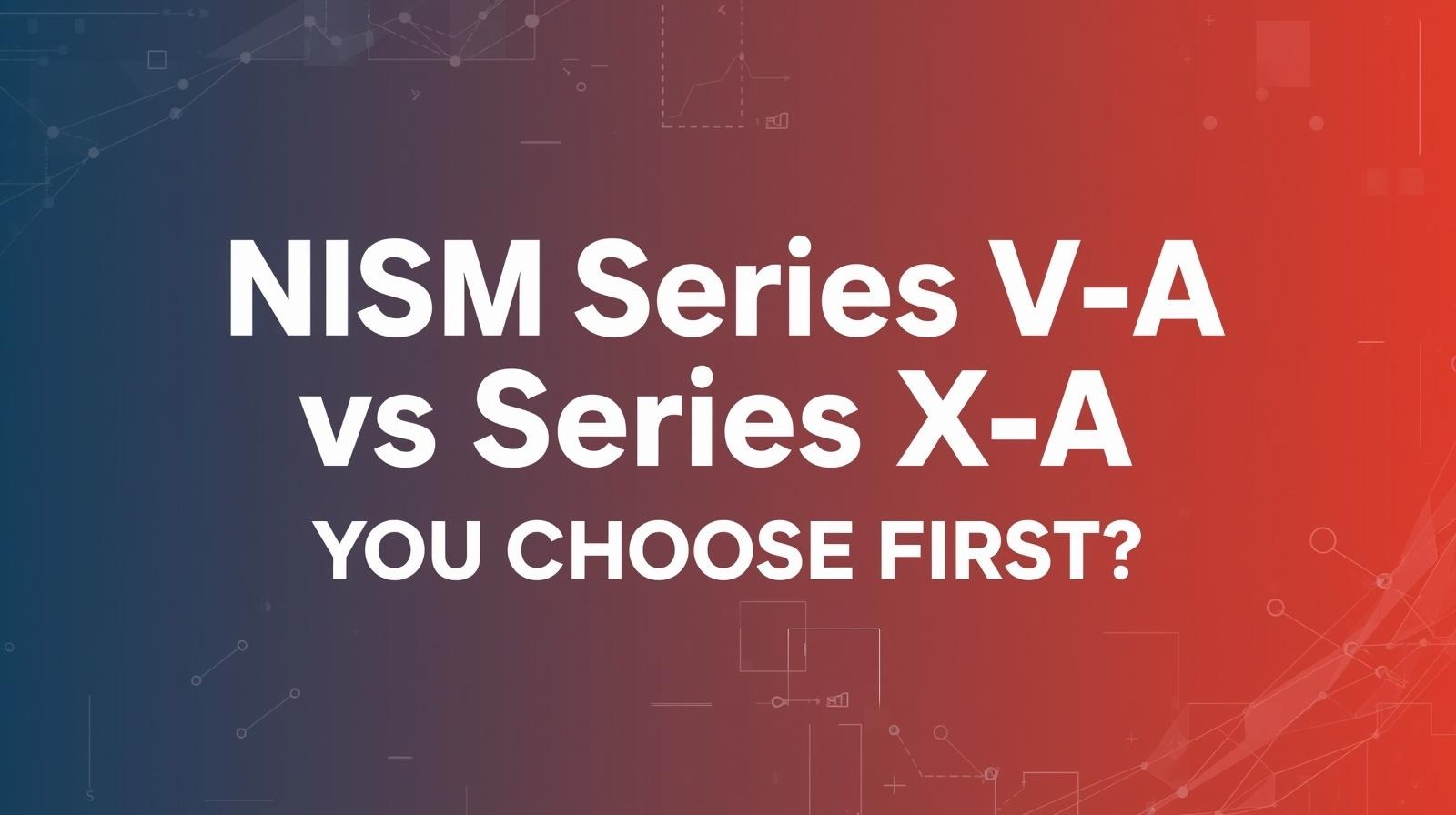There are no items in your cart
Add More
Add More
| Item Details | Price | ||
|---|---|---|---|
Mon Nov 10, 2025

NISM Series V-A vs Series X-A: Which One Should You Choose First? Choosing the right finance certification can feel like standing at a crossroads — each path promises skills, recognition, and career growth. Two popular exams in India are NISM Series V-A (Mutual Fund Distributors) and NISM Series X-A (Investment Adviser Level 1). This SEO-optimized guide compares them head-to-head, places them beside other certifications like NCFM and CFA, and helps you decide which to take first depending on your goals. Target keywords: NISM vs NCFM, NISM vs CFA, best finance certification in India are used naturally throughout.
| Feature | NISM Series V-A (Mutual Fund Distributor) | NISM Series X-A (IA Level 1) | NCFM (select modules) | CFA (Chartered Financial Analyst) |
|---|---|---|---|---|
| Target audience | Mutual fund agents/distributors | Aspiring/registered investment advisers | Traders, back-office, operations, analytics roles | Investment analysts, portfolio managers |
| Duration (study) | 2–6 weeks (basic) | 6–12 weeks (broader) | 2–8 weeks per module | 6–18 months per level |
| Exam length | 100 Qs, ~2 hrs (varies) | ~100 Qs, 2 hrs (varies) | 60–120 Qs depending on module | 6-hour exam per level |
| Cost (exam fee, approx.) | Low (affordable) | Medium (higher than V-A) | Low (per module) | High (registration + exam fees) |
| Difficulty | Beginner → Moderate | Moderate → Advanced (broader scope) | Varies by module (basic → advanced) | Very high (intensive quantitative + qualitative) |
| Recognition | Mandatory / widely recognized in India | Mandatory for RIA roles; strong regulator backing | Recognized for technical skills in India | Global recognition; gold standard in investments |
| Job scope | Mutual fund distributor, client servicing, sales | Investment adviser, portfolio recommendations | Trading, operations, research support | Equity research, portfolio management, institutional roles |
| Time to job impact | Short (weeks → months) | Medium (months) | Short (module dependent) | Long (years to full benefit) |
Week 1 — Foundations